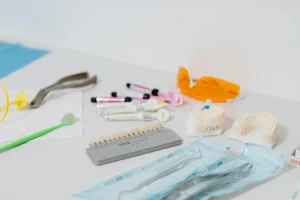When considering dental treatment abroad, many patients wonder if the dentists they will encounter are as qualified as those back home. Dental care is a crucial component of our overall health, and it’s natural to feel concerned about the quality and safety of treatment when venturing outside of your country. While the idea of receiving dental care overseas may seem daunting, millions of people successfully seek treatment abroad every year, often with high satisfaction.
With the rise of dental tourism, more and more patients are traveling to countries like Mexico, Thailand, and Colombia for affordable yet high-quality dental care. However, the question remains: Are these dentists as skilled and qualified as those in your home country? In this blog, we’ll explore the global standards of dental education, the qualifications you should look for in international dentists, and the factors that can help you make an informed decision when choosing dental care abroad. Understanding these aspects can not only reassure you but also empower you to make the best choices for your oral health.
By the end of this article, you’ll gain confidence in knowing how to assess the qualifications of dentists abroad, understand the accreditation systems that ensure quality, and become familiar with countries that are well-known for offering world-class dental services, such as Colombia. Let’s dive into what makes a dentist qualified globally and how to navigate the process of choosing the right one for you.
Understanding Global Dental Education Standards
Dental education is a long and demanding process that varies slightly from country to country. However, no matter where a dentist practices, the level of education and training they receive is critical in ensuring they can perform safe and effective treatments. In most countries, becoming a dentist requires completing a rigorous academic program that combines theoretical knowledge, clinical experience, and practical skills. While dental programs are generally similar worldwide, the duration of the education, the curriculum, and the exam requirements can differ depending on local regulations and standards.
In many parts of the world, a dentist’s education spans between five and six years, typically culminating in an undergraduate degree in dentistry. During this time, students learn about human biology, anatomy, and advanced dental practices, including preventive care, restorative treatments, and surgical procedures. After graduation, dentists must undergo licensing procedures to legally practice, and some may also pursue postgraduate certifications in specialized fields like orthodontics or implantology.
However, global dental standards and qualifications are monitored by several professional bodies that ensure dentists meet high standards of care. Some countries have established rigorous regulations for dental education and have become known for their reputable programs that comply with international standards. For patients traveling abroad for treatment, knowing the global benchmarks that dentists must meet is essential for ensuring a successful experience.
Countries with established reputations for high-quality dental care often have educational programs that are recognized internationally. In places like the United States, Canada, and the United Kingdom, dental education is highly structured, with strict certification requirements and continuing education to keep up with evolving treatments. Nevertheless, many other nations also have dental education systems that adhere to similar high standards, allowing their graduates to deliver world-class care. For example, Colombia boasts dental schools that provide a comprehensive education and training that prepares professionals to offer exceptional care to both local and international patients.
Why Colombia Stands Out in Dental Care
When it comes to dental care abroad, Colombia has become one of the most popular destinations for international patients seeking high-quality and affordable treatment. The country is home to some of the most reputable dental schools in Latin America, producing graduates who are highly skilled in both general and specialized dentistry. Colombian dentists are well-known for their expertise, and many have completed additional certifications and training in leading international programs. The combination of excellent education, modern technology, and competitive pricing makes Colombia a leading choice for dental tourism.
In Colombia, dental professionals receive a thorough education, which includes not only academic studies but also hands-on clinical practice. Many of the country’s dental schools are accredited by national and international organizations, ensuring that students receive top-tier education and training. Additionally, the country has a growing reputation for offering specialized courses in fields like cosmetic dentistry, orthodontics, and implantology, all of which are available at some of the country’s top clinics.
Colombian dental clinics are equipped with cutting-edge technology and follow strict hygiene protocols, adhering to international standards. This makes the country an appealing destination for people seeking affordable care without compromising quality. In fact, many patients report saving up to 70% on dental procedures in Colombia compared to what they would pay in the United States or Europe, all while receiving treatments from qualified professionals who use the latest advancements in dental technology.
Moreover, Colombia’s dental professionals are known for their commitment to continuing education. Many Colombian dentists actively participate in international seminars, workshops, and conferences, ensuring they stay at the forefront of the latest dental technologies and trends. As a result, the level of expertise in Colombia is comparable to that found in any top dental care destination worldwide.
How to Assess a Dentist’s Qualifications Abroad
Now that we’ve established that many countries, including Colombia, produce highly qualified dentists, the next step is understanding how to evaluate a dentist’s qualifications when you’re considering treatment abroad. To ensure that you’re in good hands, it’s crucial to take a proactive approach when selecting your dental care provider. While it may seem overwhelming, there are several key factors that can guide your decision-making process.
- Education and Training: Start by asking about the dentist’s educational background. Look for information on where the dentist studied and whether the institution is accredited. In many countries, such as Colombia, you can verify a dentist’s credentials through official government registries or professional associations. Some dental schools in Colombia even have global recognition for their academic standards, which can provide further peace of mind about the quality of training the dentist received.
- Membership in Professional Organizations: Being a member of reputable professional organizations is another good indicator of a dentist’s commitment to maintaining high standards. Look for dentists who are members of organizations like the Colombian Dental Federation, the International Association for Dental Research, or other respected global institutions. These memberships often require dentists to adhere to ongoing professional development and ethical guidelines.
- Certifications and Specializations: If you need specialized care, such as implants or cosmetic dentistry, make sure the dentist has the relevant certifications and experience in that area. Many Colombian dentists are trained in international programs and have additional certifications in areas such as orthodontics, periodontics, or dental surgery. Specializations can make a huge difference in the quality of care you receive, so don’t hesitate to ask for detailed information about their expertise.
- Patient Reviews and Testimonials: Reading patient reviews and testimonials is an excellent way to gauge the quality of care a dentist provides. Many dental clinics abroad have websites or social media profiles where previous patients share their experiences. Look for reviews that highlight the professionalism of the dentist, the quality of care, and the overall experience. Positive feedback from international patients is a strong indicator of a dentist’s ability to offer high-quality care to people from different countries.
- Communication and Transparency:
Effective communication is essential in any medical field. A qualified dentist should be willing to clearly explain the treatment options available, discuss the associated costs, and answer any questions you have about the procedures. Transparency is a key factor in building trust, so make sure the dentist provides clear information about their qualifications, the treatments they offer, and what you can expect during the process.
The Importance of Choosing Accredited Clinics
While a dentist’s qualifications are crucial, the clinic where the treatment takes place is just as important. Accredited clinics follow stringent safety and hygiene standards, ensuring that patients are treated in a clean and secure environment. When selecting a dental clinic abroad, look for facilities that are accredited by international organizations like the Joint Commission International (JCI), which evaluates healthcare facilities worldwide for their safety and quality standards.
Accreditation ensures that the clinic meets global standards for infection control, equipment maintenance, and patient care. In Colombia, many dental clinics are accredited by international bodies, ensuring that they meet or exceed the standards found in leading dental centers around the world. These clinics typically have modern equipment, such as digital X-ray machines and 3D imaging systems, which are crucial for accurate diagnoses and treatment planning.
Benefits of Seeking Dental Care Abroad
Choosing dental care abroad can offer several advantages. One of the main reasons patients seek dental treatment in countries like Colombia is the significant cost savings. Dental procedures abroad can cost as much as 50-70% less than in the United States or Western Europe. Despite the lower prices, patients often find that the quality of care remains high, as many clinics abroad offer state-of-the-art technology and highly qualified professionals.
Another key benefit of dental tourism is the ability to access advanced dental techniques that may not be available or affordable in your home country. Countries like Colombia have clinics that specialize in cosmetic dentistry, dental implants, and advanced orthodontics, allowing patients to receive treatments that are tailored to their specific needs.
Making an Informed Decision
As you begin planning your dental trip abroad, it’s important to take the time to thoroughly research your options. Start by scheduling a consultation with the dentist or clinic to discuss your treatment options and assess their qualifications. Make sure to ask for a detailed cost breakdown, and inquire about any additional fees or charges. If you’re unsure about any aspect of the treatment plan, don’t hesitate to ask for clarification.
By following these steps, you can ensure that your dental experience abroad is safe, effective, and rewarding. With the right information and preparation, you can enjoy the benefits of affordable, high-quality dental care without compromising on your health or safety.
Conclusion
In conclusion, dentists abroad, particularly in countries like Colombia, are often just as qualified as those in your home country. With rigorous education programs, ongoing certifications, and modern clinic facilities, dental professionals in Colombia are well-equipped to provide exceptional care. By taking the time to verify qualifications, check for accreditation, and research patient feedback, you can confidently choose a dentist abroad who meets your needs and ensures your safety throughout your treatment.
At Aleriom, we connect patients with top-tier dentists and clinics that adhere to international standards, ensuring high-quality care at an affordable price. Visit our website to learn more and take the first step toward achieving a healthy smile with dental care abroad.








